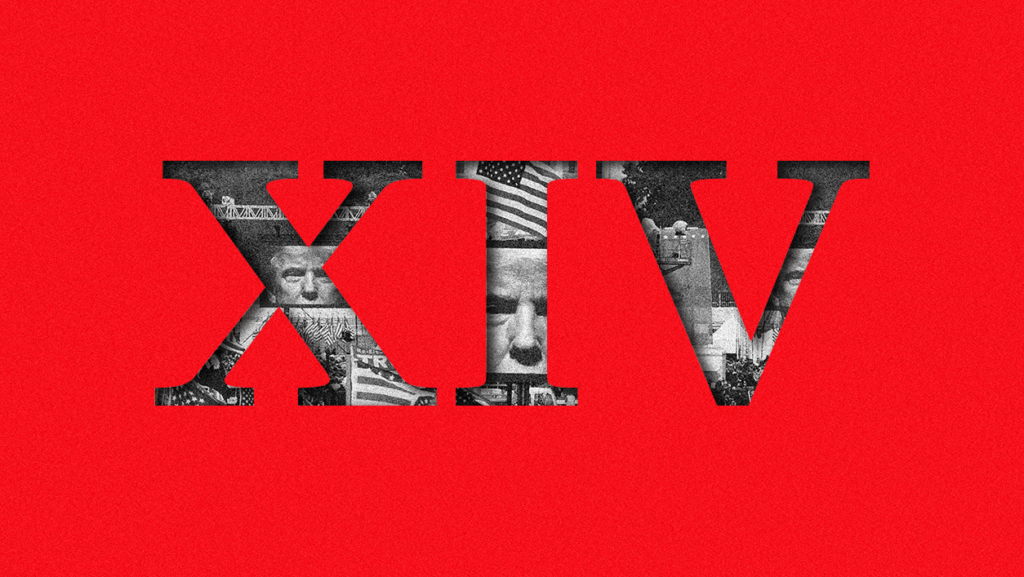What to Watch During Oral Argument in Trump’s Ballot Disqualification Case

Tomorrow, the U.S. Supreme Court will hear former President Donald Trump’s appeal of a Colorado Supreme Court decision that removed him from the state’s primary ballot. Historians, political figures, legal scholars and political pundits have all weighed in on a case that will have major implications for the 2024 elections and our democracy at large.
The appeal stems from a lawsuit filed by a group of Colorado voters seeking to disqualify Trump from holding the office of president under Section 3 of the 14th Amendment. In November, a Colorado state judge found that even though Trump engaged in insurrection on Jan. 6, 2021, that did not disqualify him from appearing on Colorado’s primary ballot. Both Trump and the Colorado voters appealed the district court’s decision to the Colorado Supreme Court. Last December, the Colorado Supreme Court shocked the nation by barring Trump from the state’s primary ballot and in the first week of January, the U.S. Supreme Court accepted Trump’s appeal, agreeing to take the case in full and scheduling oral argument for tomorrow.
Tomorrow, the parties will make their arguments to the nation’s highest court one last time. Here are four questions to consider as you listen to oral argument tomorrow:
Who gains the upper hand in the constitutional tug of war over enforcement power under Section 3?
One of the more fundamental questions that could come up in tomorrow’s oral argument is who enforces Section 3 of the 14th Amendment. Trump argues that the fate of his eligibility should not be left to state courts and state officials, but rather, it should be left to Congress. Trump cites the instruction from the 14th Amendment, which directs Congress to “enforce” provisions of the 14th Amendment “by appropriate legislation.” Historically, Congress enacted legislation to enforce provisions via the Enforcement Act of 1870. Trump maintains that questions of eligibility are always “politically charged” and should not be influenced by “a court’s opinion of a candidate.”
Lawyers for the Colorado challengers claim the U.S. Constitution recognizes the state’s authority to regulate presidential elections, specifically ballot access rules. While Trump and his defenders have argued that Section 3 only applies when a candidate holds office rather than runs for office, the challengers disagree and cite that there are no limitations on enforcing Section 3 at the ballot qualification stage. Furthermore, states’ enforcement of Section 3 does not usurp Congress’ authority since Congress can grant amnesty at any time. Ultimately, it will be up to the Court to decide who has the power to enforce this key section.
Can the Colorado challengers persuade any of the Trump-appointed justices?
To keep Trump off the ballot, Colorado challengers will likely have to convince at least one of the three justices appointed by the former president — Justices Neil Gorsuch, Brett Kavanaugh and Amy Coney Barrett. Their engagement and activity during oral argument may offer a preview into whether they are amenable to the possibility of disqualifying the man that appointed them. Their judicial records offer very little clues into where they could stand.
In 2012, former Colorado secretary of state and current counsel for Trump in this case, Scott Gessler, blocked Abdul Hassan, a naturalized citizen born in Guyana, from appearing on the state’s presidential ballot because he wasn’t a natural born citizen. Hassan challenged this decision in a lawsuit that ended up in the 10th U.S. Circuit Court of Appeals.
On appeal in the 10th Circuit, Gorsuch authored the opinion siding with the state’s disqualification of Hassan. “A state’s legitimate interest in protecting the integrity and practical functioning of the political process permits it to exclude from the ballot candidates who are constitutionally prohibited from assuming office,”Gorsuch wrote.
It will be interesting to see if those sentiments remain true and whether any of the other Trump-appointed justices are persuadable in this case.
Could we see the return of independent state legislature theory?
Last year, in Moore v. Harper, the Court rejected the independent state legislature theory — a right-wing legal theory asserting that state legislatures have exclusive authority over laws regulating federal elections. It is possible that it comes up again after Trump revisited the argument in his brief. Trump believes that the Colorado Supreme Court interpreted state election law in violation of the will of the Legislature and the Electors Clause of the U.S. Constitution.
Pro-voting groups warn the Court that entertaining such arguments could provide federal courts “a free-wheeling license to second guess [state court] interpretations.” Colorado’s secretary of state also pushes back, arguing that the Colorado Legislature gave express authority to state courts to resolve legal issues, including eligibility challenges to presidential primary candidates. It would be notable if the fringe legal theory makes a return to the Supreme Court tomorrow.
How will the Colorado secretary of state’s argument impact the case?
The Court granted ten minutes to Colorado’s secretary of state Jena Griswold (D) to make the case for why Trump should be kept off of the state’s primary ballot. Griswold requested to share time with the Colorado challengers, citing “unique state-law and state-level election-administration issues” in the case. The Colorado challengers opposed a division of time on their side since Griswold “repeatedly took no position on the core question in the case.”
While the substance of the Colorado challengers’ arguments focuses on Trump’s action and the application of Section 3, Griswold’s argument focuses on Colorado’s 130-year old ballot access challenge process and her duty as secretary of state to ensure voters are not disenfranchised by ineligible candidates on the ballot. These themes offer a preview of the void the state’s solicitor general’s arguments may fill.
Oral arguments will take place before the U.S. Supreme Court tomorrow at 10 a.m. EST. Find out everything you need to know about Trump and the 14th Amendment here. We will provide live updates during oral argument here.